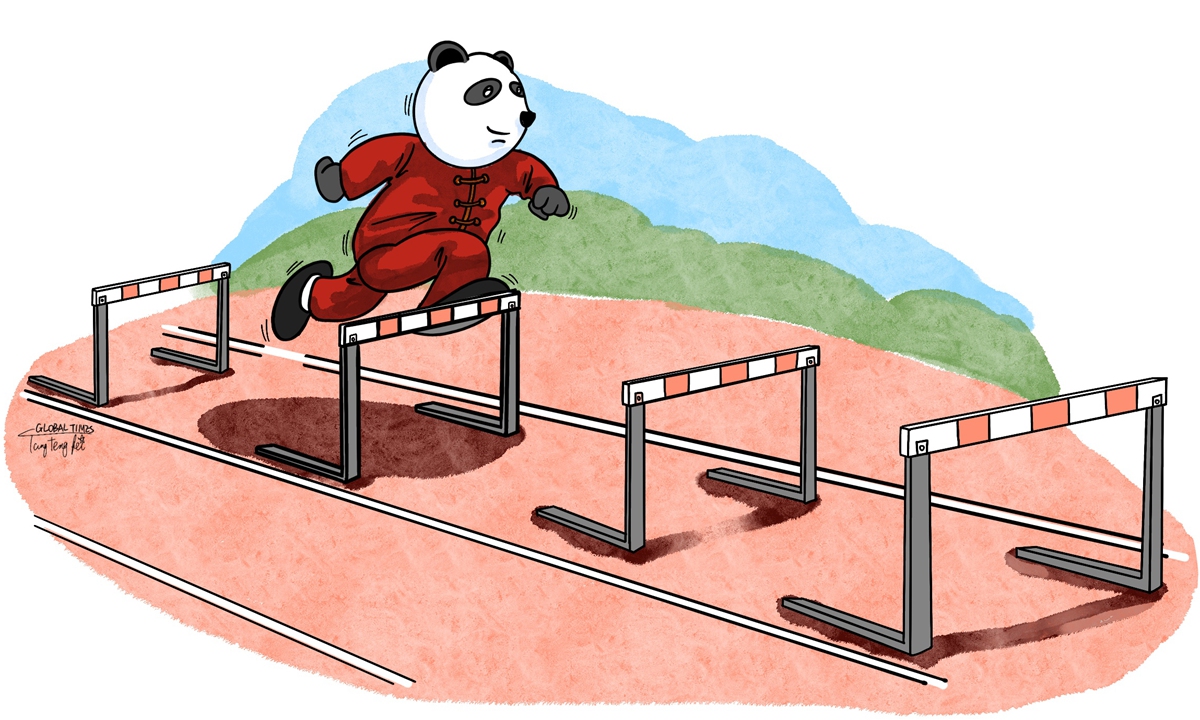Keeping calm and leveraging wisdom to blunt outside provocations: Global Times editorial

Illustration: Tang Tengfei/GT
It is undisputed that China is becoming increasingly stronger. Yet some external forces are still suppressing and provoking China. How China responds to them, whether the country should respond with aggressive countermeasures and to what extent should China counter the suppressions and provocations is now a test for China.
First, we need to have an objective and clear understanding of ourselves. China has indeed become more powerful. Both the country's economic scale and the level of national defense are reaching an unprecedented high, giving the country a competitive edge. China has to overcome foreign disruption as we continue to grow.
Therefore, in the face of malicious and even hostile provocations, we must deliver tit-for-tat counterattacks, to safeguard our nation's core interests. If we are too soft in our response to provocations, the world will not respect us, and there will be more adversarial forces to intimidate and bully us.
Meanwhile, we also need to be clear that our biggest task in the coming future is to continue developing our country, instead of being belligerent or venting out anger when being provoked. The best strategy to deal with some provocations is to ignore them and keep going. Facing all kinds of provocations, our overarching strategic goal is to keep our posture and calmness.
We should acknowledge that we are not the largest and strongest force in the world yet. The US is more powerful, which owns a good number of close allies to support its cause on the global stage. The US is now summoning those countries to contain China, and is also attempting to incite China's neighbors to aggravate friction and conflict with China, in a bid to slow down our development and ultimately stall China's rise. How to mitigate the US' containment effect is a big challenge.
China needs smart strategic wisdom to deal with the complex situation. We must fight against various provocations, and uphold our national interests. Meanwhile, we should not intensify the frictions, and should try to avoid high-intensity confrontations with the US or its close allies.
We need to distinguish between our core interests and those that are not. At the same time, we have to master the art of struggle so that others fully recognize China's core interests and be convinced of our determination and resolve that we will never retreat on those core interests.
In a nutshell, China is now strong enough to defend our core interests from being damaged, but we have not been able to deter external forces from harassing us on some lesser issues. It is vital to remember that time is on China's side, and the country's strategic initiative to deal with those issues is mounting.
China's rise is never to be smooth. We need to make sure that other countries are aware of China's red lines, and those lines should never be crossed. We should assure the outside world that China is always a friendly force which will not encroach on other countries' interests, and will not take the initiative to escalate frictions. China will not leverage its growing economic strength to intimidate or coerce any country in the world.
The main approach for the US to mobilize an anti-China united front is to slander China for its security expansion, diplomatic bullying, so as to serve US' self-interest. In addition to taking countermeasures against US slandering, we need to take actions to convince the whole world that China is indeed not what the US claims it is, but a friendly business partner always aiding other countries' development.
As a result, Chinese public opinion must break through the old mind-set. We must firmly support our nation's professional diplomatic team in formulating specific diplomatic strategies in light of different situations. When it's time to fight back, we should bear the necessary costs. When diplomats adopt a flexible foreign policy, we should support it as well.
In short, we should believe that our diplomatic team is capable of maximizing our country's national interests at a minimum cost and support the decisions they make.
We should oppose the outside world's smearing of China's "Wolf Warrior diplomacy," which is utterly exaggerated by some foreign forces. We should avoid too aggressive or offensive rhetoric in the field of airing our opinion, which will add pressure on China's diplomacy and may offer additional excuses for the US to promote the "China threat" theory. China's national strategy cannot be achieved without the proactive and rational participation of the public, and public opinion is the dispensable support to enhance the strength of diplomacy.
